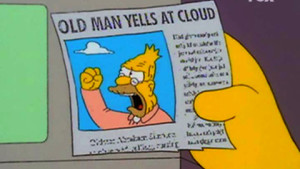Happy Wednesday, dear readers!
It’s no secret that you humble blogger is a big fan of ventures like Uber – the intrepid citizen, eager to shrug off the shackles of punching the clock; the end-customer dropping the middle-man and transacting business on the direct. And, the simplicity of straight-forward numbers, no deductions or notices or insurance …
The growing business model in California and elsewhere is for an entity to provide a platform for consumers to engage labor directly – the compensation of the labor(er) is determined by his or her hustle, and a small cut goes back to the business that set up the deal. Everybody wins!
The benefit is the flexibility to the worker and the lack of administrative and overhead pains for the platform – no workers’ comp insurance, for example. No minimum wage, or overtime, or any of the other stuff employers have to go through in California. The savings make for lower costs and higher earnings.
Well, the California Labor Commission ruled regarding one driver, finding her Uber’s employee, rather than an independent contractor. Uber has appealed, but it’s a scary thought.
The ruling cited Borrello & Sons v. DIR, a Supreme Court case which has made an appearance or two on this humblest of blogs, and also applied the analogy of pizza delivery drivers – ones who own the car, pay for gas and insurance, and merely deliver pizzas for the customers of the employer, but are still considered employees. The opinion also relies on the fact that the Uber driver’s car is the driver’s only investment – the intellectual property (and often the iPhone itself) are provided by Uber.
Of course, in the pizza-delivery situation, the driver is a tiny part of a large service, which is primarily the pizza. In the Uber model, the “employee” provides almost the entire service, with Uber just providing the platform for the exchange of money and contact information.
Rulings like this, especially if there’s one that is more wide-spread and binding throughout, could pretty much kill this industry and business model. If rates, investments, loans, etc. are all arranged based on the good-faith agreement between companies like Uber on one hand and the drivers on the other, those foundations all come apart when the agreement is set aside by an outside party (like the Labor Commission).
Seriously folks – there’s enough people who are out of work – do we really want to kill something that lets anyone with a car and an iPhone get a gig on his or her own time? Do we really need to burden more and more people with so-called protections that they don’t want?
There are about 160k Uber Drivers making on average $19 per hour – and those are hours they set themselves; sometimes they aren’t even hours, but 45 minute stretches in between other obligations. Now, who wants to see all those earnings opportunities disappear?
It would make sense to your humble blogger to let grown-ups be grown-ups and enter into their own arrangements and contracts.
But, let’s say you don’t care much for this Uber – you hated Nietzche in high school and college; you don’t like the idea of being driven around in anything other than a black limo or a yellow cab; you can’t stand the idea of “apps” and the kids with their music and their Facebooks on the phones…
what about YOUR business? What about the countless business models that drive (get it?) the businesses in California that rely on arrangements presumed to be rooted in independent contractor status, but are really employee-based?
The reason we have contracts, and the reason we enforce them, is because uncertainty kills business ventures – the more risk, the harder it is to get someone to venture money and time. When the clear intent of both parties at the start of the relationship is to form an independent contractor arrangement, and NOT an employee-employer relationship, and California allows one party (typically the labor side) to void the contract on a whim, you’re teaching young, impressionable businesses to check under their beds for California.


Pizza delivery and Uber driving seem like apples and oranges to me. The pizza deliverer reports to the pizza parlor for a scheduled shift, is supervised, told when to wipe down tables, when and where to deliver pizza, etc. The Uber driver doesn’t report anywhere, isn’t supervised, makes his own schedule. It’s a totally different situation.
I know that the law favors a finding of employment, but I’m hoping Uber wins this one. Legal obstacles are nothing new for Uber. I have a feeling it will prevail.
“the end-customer dropping the middle-man and transacting business on the direct”
isn’t Uber the middle-man?
Not in the conventional sense… and if Uber is a middle-man, it’s a tiny, tiny middle man… Uber really is facilitating the transaction and is collecting a cut simply to pay for the technology involved. By contrast, the pizza restaurant is the business, and the pizza delivery driver is a small cog in the pizza machine.